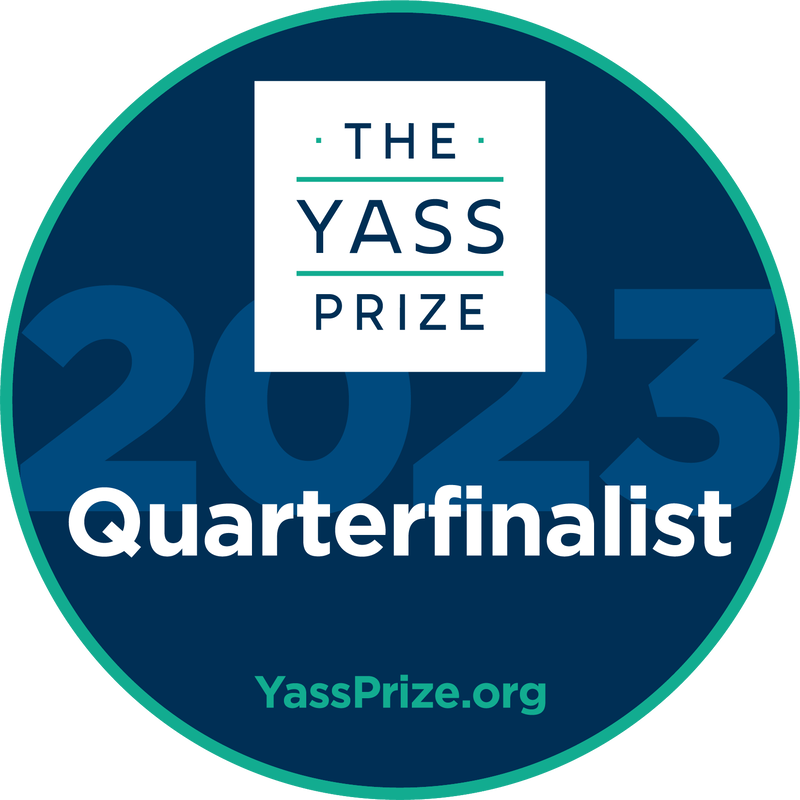|
Hi there! You may be reading this because the mother of your child has asked you to. She may be interested in sending your child to our school, the new independent K-5 school in Bismarck/Mandan. You? You're not convinced. In preparation for writing this latest blog post, I tried to do some research into this dilemma. My first search was interesting... if you Google "how to convince your husband", the first thing that pops up is "to get a dog", followed by "to have another baby", then "to get a 2nd dog", "to get a cat" and lastly "to move". Not helpful to me, but maybe makes you feel better... she's not talking about new pets or moving! Then I thought... maybe I should start with a little about who I am and what this school is all about. My name is Maggie and I'm a recovering straight-A student. Have you ever read Calvin and Hobbes? I was Susie. My inspiration for starting this school? I have two sons who sometimes resemble Calvin. It has turned my world upside-down (for the better) and over the past 3 years I have learned so much about myself, about education, and about learning in general. After much deliberation, research, and hard work, I convinced my husband and sons to trust me as I take on the challenge of starting a new school for our community. And now you are being asked to trust me too. I understand the resistance. Let me break a few things down before I invite you to come see our school.
First, I'd like you to think about the simple idea that learning is natural. Learning new things is what separates us from the animals. It is why we enjoy cool, refreshing homes in the heat of summer. It is why we hop in our vehicles and drive to work instead of trudging there on foot. It is why you can come home from work and play Mobile Strike from the comfort of the bathroom... er, I mean living room (sorry honey!) instead of reading by candlelight. The many things we take for granted are products of someone's natural ability to learn new things. And yet, each of these examples could go one step further... someone learned something, and then took steps to DO something with that knowledge and MAKE something. I love to make things. (You should see me geek out about our new 3D printer!) I had a dad that enjoyed using his hands, fixing things around the house, and passed this along to me. My sister and I were always included when he was working on something. He taught me how to measure, to use tools (including power tools), and to tackle problems. This last one is important. By allowing me in on his process, he helped me look at problems in a different light, which is the first step towards problem solving and critical thinking. (He also treated me as a competent human being, which was helpful in building my confidence and self-esteem.) Number 1: The Innovation School is a school for applying knowledge and making things. Second, I'd like you to think about the people you know who hated something in school, but now find themselves enjoying it. I have some friends that hated gym class but now run marathons. I know others that talk about despising history class but now love documentaries. And how about the people who couldn't stand reading in school but thoroughly enjoy it now? (My husband reads a book a week but to this day talks about how much he didn't like English class - no offense Mrs. Larson... he loves you!) These are simple examples about how traditional school prioritizes content over student engagement and learning. It's getting better, but not fast enough for our children. Number 2: The Innovation School is a school where students can learn deeply by drawing on their personal interests and strengths to encourage engagement. Now, I'd like you to think about your definition of investment. According to The Business Dictionary, an investment is money committed or property acquired for future income. It also goes on to state that "Expenditure on education and health is recognized as an investment in human capital." And I get it. This is the hardest part. Investment in human capital. This is when we start to say things like, "I survived school... they'll get through it.", "I'm sure it's not that big of a difference.", "Seriously... 9 grand a year?!?!?", "How can you honestly tell me it'll be worth it?" If these are things you've said or thought when you're discussing our school as an option for your child, please know that I understand. I wish it could be different. I am not taking a salary to help keep costs down. (Actually, I found out this is illegal in ND, so I am taking the minimum salary and donating it back to the school.) We are not subsidized by a church, nor do we have years behind us where we finally own our building, etc. And we live in a state where charter schools are illegal and so we have no federal or state funding to help us provide this unique experience to local students. But consider this... if your child attends school in Bismarck, the state is spending almost $10,500 on his/her education per year. (I am not attempting to compare apples to apples as our local public schools must serve everyone and we are unequipped to serve some students with special needs, for example.) But with this knowledge, do you feel your child is receiving the full investment of the state funds being spent? Is this the real reason you are being asked to read this blog post... to consider what more your child may need from his/her school that they aren't getting? Number 3: The Innovation School is an investment in your child to help them learn who they are, what they are good at, all while learning in context and applying knowledge and building upon it. And briefly, Number 4: We want to try to be creative in helping you figure out a way to make this work for your family. Dads... you are important. So very important to your child's well being and success. Research continues to show how much you mean to your child. At The Innovation School, we hope you will consider coming to hear a little more about us and ask us your questions. We are holding a Dad's Night on Wednesday, August 2nd at 7pm at our location. We will be having a barbecue with BYOB. I know you may not be convinced yet to trust me, but please come meet me and some of the special men we have on board as we begin this new chapter in education for our community. We hope to see you there! Click here for your free ticket (so we know how many to plan for!)
20 Comments
I've been home for 48 hours, taken 2 naps and gone to bed early. I thought catching up on sleep would help me sum up our experience at CMK, but I still feel like I'm percolating. Maybe that's the takeaway... a full school year of pondering, implementing, and learning more. In the spirit of brevity, from the advice from Gary (@garystager) to "slice up my blog" and from my husband in regards to my last post ("It was so long!") I will try to sum up concisely, meaningfully, and Twitterishly. Best quotes: Deborah Meier (@debmeier) - "The sense of you as a human being to make things internalizes a power to reshape the world... and that carries an implicit message.", "Schools should be places where children keep company with adults.", and lastly "Let's give agency back not only to students, but teachers as well." Gary Stager (@garystager) - "Learning is natural.", "Ask kids how often they have learned something online but how often they have shared something for others.", and in regards to our personal journey, "Maintain your courage and conviction!" Pete Reynolds (@FableLearn, @FableVision, @FablePaul, & @peterhreynolds) - "Only human beings can notice other human beings." (in reflection about how amazing technology is but how more amazing people are.) An art teacher named Andrea attending CMK - "I know I CAN do it, now I just have to move forward." Ayah Bdeir (@ayahbdeier) - I'm not sure if this is her quote but was on the laptop she used "You gotta break-it to make-it." She was inspirational to listen to... see my last post. Lastly, our own Kelsy Power (@kelsy_power) - "The kids can do it." I love this because it shows her immense faith in children and passing responsibility to her students... children step up if given the chance to do so. (In my opinion, the funniest quote from the week was from our own Kaylee Dahl {@kaylee_c_barker}... I made a joke about the box we created to hold our motor for our project and called it the "motor home"... she then said glibly, "We should have just made a motor home... it would have been easier!" It was great to laugh amidst our frustration. And then to see our completed project - video below - was even that more satisfying.) Being around like-minded educators at #cmk17 was so uplifting and exciting. The proof that TIME is one of the best things a school can give its students was apparent as we worked on our projects. I think my best takeaway was simply that perfection wasn't what we were striving for. We were looking to do something new and learn along the way. Our finished product wasn't ready for SharkTank, but neither were many others... the journey and what we learned were far more valuable than the end product... another valuable lesson. Would you like to learn more? Are you interested in hearing how The Innovation School is bringing this type of learning to North Dakota? Are you hoping to teach your child how to be adaptable, competent, and flexible in an ever changing world? Please contact me today to discuss how The Innovation School can be a solution. I look forward to talking with you! Our project with custom 3D printed gears and parts... a quick way to chill your juice/soda (without ice diluting it).I'm tired. Very tired. My emotions have been through the wringer the past few days. Day 2 of #cmk17 was amazing. After a busy day hearing the infamous Deborah Meier (@debmeier) speak (#teachercelebrity) and a dinner at a great Brazilian steakhouse, the team came back to the hotel and ended up discussing life, pedagogy, and education issues until almost 1:00 a.m. It was an exhilarating discussion... not only within our team, but with many of the faculty for our event including Gary Stager (@garystager), Sylvia Martinez (@smartinez), and Brian Smith (@briancsmith) - our "gear mentor" who has challenged our assumptions, ideas, and guided us (we grudgingly admit after dealing with the many frustrations his guidance presented) in getting to a completed project. (Also an empathy lesson in regards to our students!) Then Day 3 started. We worked diligently on our project in the morning while we waited for our first speaker at 11:00 a.m. Things seemed to be moving along smoothly. My emotions started to get the best of me (my emotions are more volatile upon getting less sleep) when we got a chance to listen to Ayah Bdeir (@ayahbdeir) who is the founder and CEO of Little Bits (see video below). Her story was not only engaging and entertaining, but also very relatable, personal, and inspiring to me. Ms. Bdeir shared how her mission is to help children become inventors. She is also inspired to help blur the boundaries between disciplines - her thoughts on careers for the future included robotics veterinarians and artificial organ farmers - doesn't get more cross-disciplinary than that! Crossing disciplines truly challenges children (and all people) to build skills that they don't yet have. I felt true inspiration (tears) as well as excitement (more tears... what can I say, I'm a mom now and that's how my overtired body expresses itself!) when she shared the video below. She also shared some insight into the up and down roller coaster she has been on while founding her company. Many of her insights and feelings mirrored my own as I move forward with The Innovation School. I have lows where I wonder why I'm doing this (it's not easy) and worries about finding students and families to join me on this adventure (which is essential to its success). But as Ms. Bdeir shared, when she was at her lowest point, she would get an uplifting email from a family or educator that couldn't wait to buy her product, and so she would lift her head and move forward. This phenomenon has happened to me SO many times during this process of starting our independent school. Local educators sending me a message of support. A family with 3 young children asking to get on a waiting list. Our own staff continually impressing me with their positive attitudes, resourcefulness, and honest insight during this experience at Constructing Modern Knowledge. And so, as in the journey of Ms. Bdeir, I continue to plod forward with my head held high, with a mission to change my community (hers is the world!) by creating an environment where children can be successful impactors of the world around them. After hearing Ms. Bdeir, the rest of the workday was up and down. Our project initially sounded very simple and quick. We were brainstorming (daydreaming as Sara Wussow likes to say) about extra bells and whistles we could add before our final presentation. Then, as obstacle after obstacle appeared, we began to wonder if we would even finish by Friday! Day 3 was filled with frustrations, excitement, and even a weary case of the giggles as I (over tiredly) found the idea of whittling amusing after my 5th prototype for a custom 3D printed gear. For me, Day 3 was also filled with insecurity and scrutiny. There are many educators here that are familiar with a LOT of the sweet tech available to us, and here was our team working with simple motors, gears, and LEGOs. Which leads to my last and most important reflection... The theory of constructivism is that learners construct knowledge for themselves and individually construct meaning as they learn. THEREFORE, we MUST meet students where they are. After scrutinizing and feeling insecure about our final project, it hit me... WE are working FROM WHERE WE ARE. Two of us had never seen Scratch before or even seen any kind of block coding. None of us had ever used a Hummingbird Duo before (or a Raspberry Pi, Arduino, or a simple breadboard). Gears were something we learned (for a test) when we were younger but never incorporated into something meaningful or useful. None of us had ever used a 3D printer or Tinkercad before. Some of us had never used a Dremel. Does this make our team incompetent? NO. This shows our inexperience, but also showcases our ability to learn new things, show perseverance, and is the definition of what we are trying to create at The Innovation School. Students bring their own knowledge to a situation (project, discussion, experience) and build upon that. Our project is physically small. But what it might not show is what we have learned through working on it. Let me see if I can list some learning highlights... the concept of refrigeration and air conditioning, RPMs, torque, application of gears, importance of stability of a structure, precision, Hummingbird Duo, 3D printing (including custom LEGO gears), Tinkercad, Snap, Scratch, using a Dremel, and waterproofing. Some things we "knew" but were able to actually apply during this project were understanding how gears work, height/width/depth (3D printing), design, speed, and thermodynamics. That seems like a lot to learn in 3 days. BUT that's not even the whole story. I have also learned some remarkable "intangibles". I have seen our team working together as a true team. I have seen one working not only on the project but to make another team member laugh during frustrating times. I have looked to some team members as a resource when I didn't have the right answers. I have seen us building upon one idea and the next to create something new, inventive, and great. I have seen kindness, empathy, and understanding. I have seen four teammates working hard to work together, embracing differences, dealing with frustrations in a positive manner and celebrating victories in an inclusive way. And I have seen some team members embrace a role as "inventor" that was surprising only to themselves... the impact on our team being so powerful that we can no longer see them as anything but inventors who learn! All these experiences have led us to be proud to have made something out of nothing! And I have also seen constructivism at its finest. I have met Eric from Baton Rouge, who is an expert at 3D printing but was only just introduced to it 2 years ago (and swears up and down that it's learnable). I have heard from Jaime who was educated as a graphic designer but taught herself coding for web development and is now the technology teacher a K-8 school (and helped her team find a coding solution to a problem after 4 hours of hard play, also known as "work"). And from our own Kelsy Power, who understood and was inspired by a faculty member (Josh @joshburker) who wanted to create a physical way to teach students how to find the surface area of a 3D object using nets. (I immediately only thought of fishing nets... another learning experience for me!) What conclusion can we draw? First off... Constructing Modern Knowledge is the best "conference" you will attend as an educator searching for answers or strategies for progressive education. Second, when you are tired and frustrated, grab some wood and whittle away. (Oh, wait, that's probably just a "had to be there" kind of experience.) Third (or is it second? it's late and I'm confused), the knowledge you bring into a situation directly impacts the outcome of your learning experience as does the effort you put into it. And lastly (this one I know is on target), the people you surround yourself with (learn from) help you make a true and immediate impact on the world. Want to "make" a better future by creating makers OF the future? Consider sending your child to The Innovation School. Contact me with any questions. Good night! (Or is it morning?!?!?) :) The Innovation School team arrived in New Hampshire late last night for the Constructing Modern Knowledge conference in Manchester. This morning, during our introduction, we were informed that this isn't a "conference" or "workshop" but rather a chance to engage ourselves as learners instead of teachers. We were called upon to trust the process for project development and really try to immerse ourselves as learners, rather than consider each aspect of what we are learning and how it should/could be applied in the classroom. Trusting the process is challenging, but even learning the design process of creating project ideas has been inspirational. The amount of "makerspace" items this place has is incredible... 3 rooms full of sewing machines, LED lights, LEGOs, robotics kits, soldering kits, tools, craft supplies, motors, circuit boards, switches, Makey Makeys, Raspberry Pis, cardboard, paper, felt and more... it seems everything you could ask for to work on a project and create something. (Everything except a Peltier Thermoelectric Cooler, which we needed, but hey, it's a project - be adaptable!) After working on our project for a large part of the day, we were bussed to Boston for an enlightening experience at the MIT Media Lab. First, we were able to listen to Neil Gershenfeld discuss his project to create Fab Labs throughout the world, and his vision to make them as ubiquitous as smartphones in the next 50 years. Neil is credited as the founder of the modern maker movement and was impressive to listen to. No wonder his class at MIT "How To Make (Almost) Anything" is one of the most sought after classes at MIT and continues to expand across disciplines on campus. We also got some insight into a delightful program called Haystack Mountain School of Crafts in Maine that pairs an immense maker lab with craftspeople to help them use technology to further their craft and art. We also heard from two colleagues at MIT, including Skylar Tibbits, who showed us a little of his work in 4D printing... a fascinating process of using a printer to print in a gel-like substance, which eliminates gravity and is done in much shorter time. The last to speak was the delightfully engaging and obviously brilliant faculty member, Eric Rosenbaum. He was inspired early in his college career with his love for music and computer coding. This brought about the co-creation of the wonderfully useful Makey Makey, seen in the video below. Eric is currently working on staff at MIT developing the latest edition of Scratch 3.0. I would love to have spent more time listening to him, as well as ask him some questions about his time during K-8. What inspired him about his early education? What would he recommend teaching young children today so that they can grow up to be not only accomplished, but creative, possessing ingenuity, and following a passion to look for more ways to impact the world? He had a sense of wonder that shone through when he spoke... a testament to his membership in the Lifelong Kindergarten group. (Also, check out his new experimental extension on ScratchX... pairing Scratch with Spotify. Highly entertaining and educational to boot!) Wow... it was a terrific day. It's exciting to see where our project will lead us this week, to see what other inspiring educators we will meet, and more importantly, how we will bring our knowledge back to North Dakota to construct an environment and experience for our local children in grades K-5. This world is changing so quickly. We need our children to be competent, adaptable, and ready for the challenge of the design revolution (Industrial Revolution, Technology Revolution... time to move over!). Thinking differently about education gives our children the edge they will need to be confident, successful, and knowledgeable in the modern world. #cmk17 |
AuthorMaggie Barth - Director and Founder of The Innovation School Archives
January 2023
Categories |
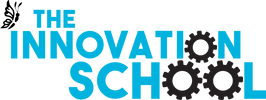
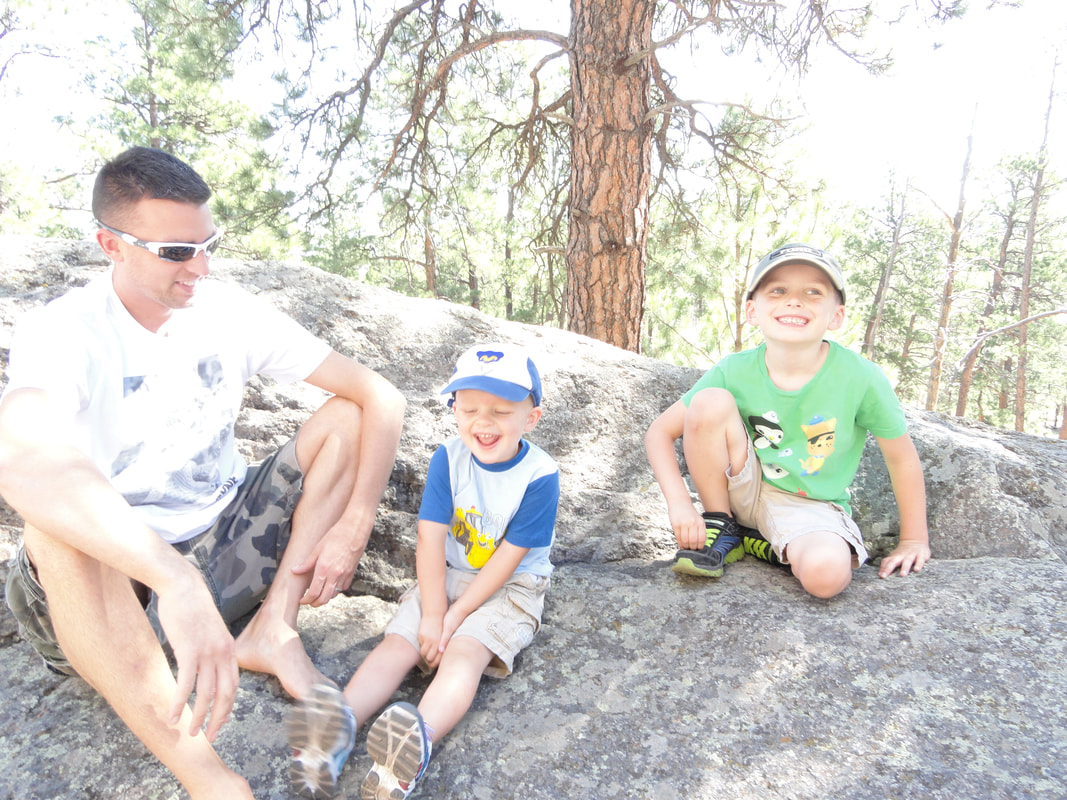

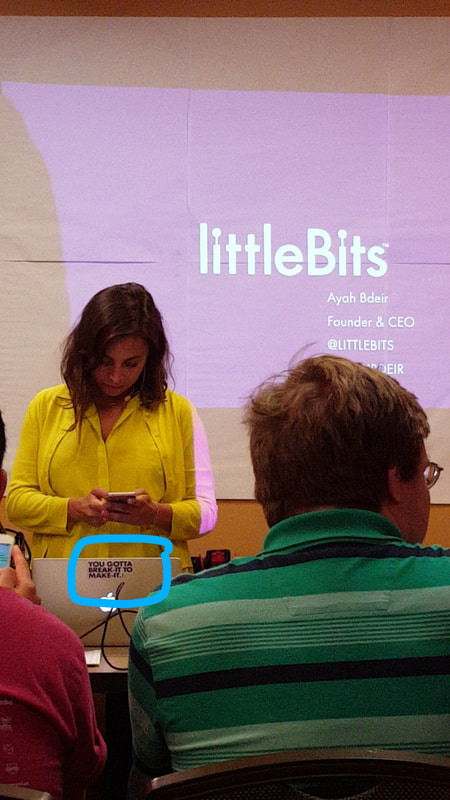
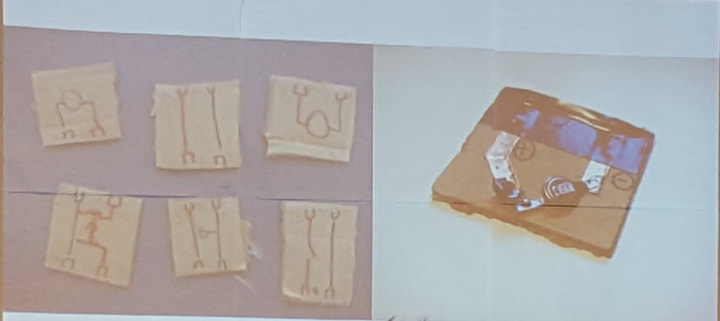
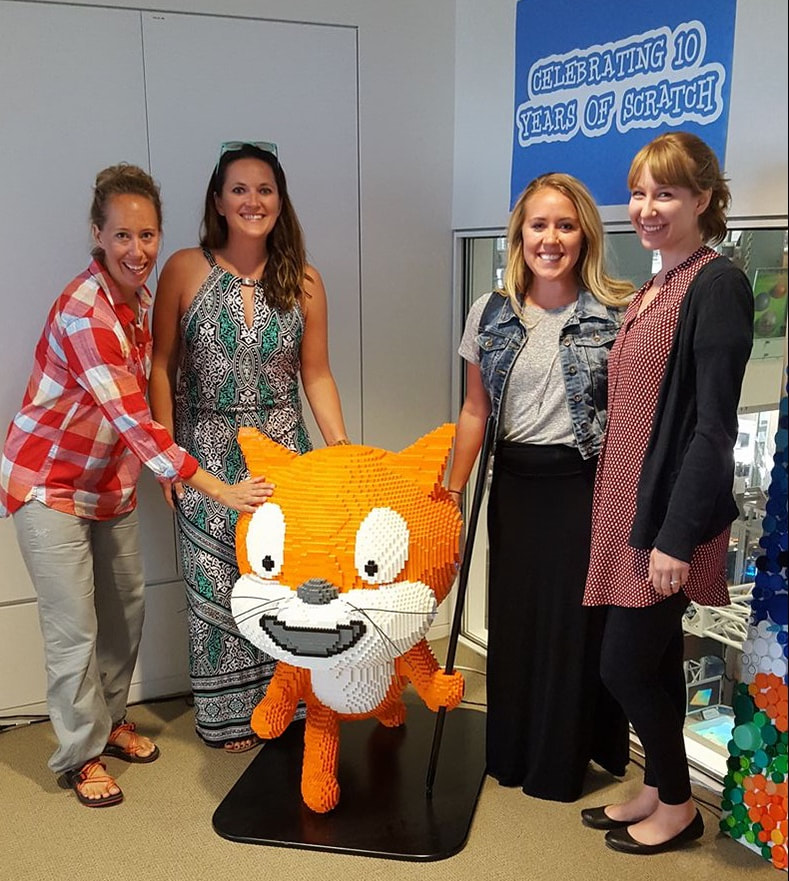
 RSS Feed
RSS Feed
